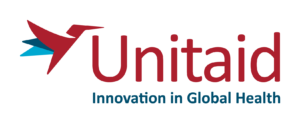Background
Malaria is one of the leading causes of illness, death, and lost economic productivity globally. A malaria infection may result in a wide variety of symptoms, ranging from absent or mild symptoms like a headache or a fever to organ failure followed by coma and even death. While the successful scale-up and use of critical commodities such as insecticide-treated nets (ITNs) and artemisinin-based combination therapies (ACTs) have resulted in huge declines in malaria-related mortality since 2000, malaria still results in over 400,000 deaths each year, most of which are in children under 5 years of age and pregnant women. The heaviest malaria burden continues to be borne by sub-Saharan African countries which accounted for an estimated 90 percent of malaria cases and 92 percent of malaria deaths in 2016. Malaria poses the greatest risk of death within the first 24 hours of illness. If not treated promptly and effectively, patients’ conditions can quickly worsen and become severe. Severe malaria occurs when infections are complicated by serious organ failures or abnormalities in the patient’s blood or metabolism. Severe malaria almost invariably leads to death if not appropriately treated. However, with prompt, effective antimalarial treatment and supportive care, severe malaria mortality rates can be substantially reduced.
Patients with severe malaria (including infants, pregnant women in all trimesters and lactating women) should first be treated with intravenous or intramuscular artesunate for at least 24 hours until they can tolerate oral medication or parenteral artemether and quinine where injectable artesunate is unavailable. Once a patient has received at least 24 hours of parenteral therapy and can tolerate oral therapy, a full three-day treatment course of ACT must be administered.
However, many patients with severe malaria live in remote settings, with poor access to formal health facilities. The distance or time required to travel, the loss of productivity due to time away from work, or availability and cost of transportation to a health facility all contribute to many patients not able to promptly seek care. Patients like this cannot access a full and effective course of treatment in time. Without effective treatment that can be administered in the community, many cases of severe malaria will result in death. In such situations, where parenteral treatment of severe malaria is not available, rectal artesunate (RAS) can be an effective pre-referral treatment for young children. It rapidly (i.e. within 24 hours) clears 90 percent or more of malaria parasites, and in children less than 6 years old who cannot reach a facility in less than six hours, it can reduce the risk of death or permanent disability by up to 50 percent. The World Health Organization (WHO) therefore recommends treating children less than 6 years old initially with a single rectal dose of 10 mg artesunate per kilogram of body weight.
After administering RAS, the child should be referred immediately to an appropriate facility where the full package of care for severe malaria can be provided. The WHO considers RAS to be a feasible and acceptable pre-referral treatment, even at the community level. While this recommendation by the WHO is strong, it is based on evidence from only one study and comes with limited operational guidance. There are currently no evaluations of using RAS at the level of community-based health care providers under real-world operational circumstances.
The Community access to rectal artesunate for malaria (CARAMAL) project
A consortium of partners led by CHAI will pilot the roll-out of RAS in parts of the Democratic Republic of the Congo (DRC), Nigeria and Uganda through integrated Community Case Management (iCCM) schemes. The pilot roll-out will be accompanied by multi-country observational research studies on the impact and practical operational and health systems-related factors relevant for the introduction of community-based pre-referral treatment with RAS. Results from the studies will guide the design of appropriate evidence-based strategies for implementation and scale-up of RAS in the project areas and beyond.
Goal
The overall goal of the CARAMAL project is to contribute to reducing malaria mortality in children globally by improving the community management of suspected severe malaria cases.
Partners and funding
The CARAMAL project runs from Q3 2017 to Q4 2020 and is funded by Unitaid. The project will be implemented by a consortium comprised of CHAI, UNICEF, the Swiss Tropical and Public Health Institute (Swiss TPH) and in-country research partners.
Related: WHO provides first-ever approval for rectal artesunate product for severe malaria






